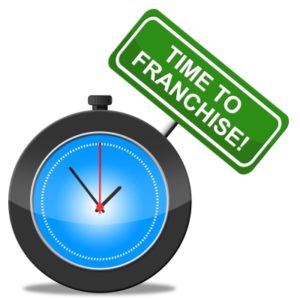 Are you ready to franchise your business? What do our franchise attorneys look for when analyzing whether a business is ready to franchise? The benefit of converting your business to a franchise system is that you can use the capital of franchisees, a.k.a independent operators paying you to utilize your business model and benefit from the use of your brand, instead of your own. But not every business is necessarily “franchise-able” right away. The timing might not be right. The financials may not be where they should be. The business might not have the right operators.
Are you ready to franchise your business? What do our franchise attorneys look for when analyzing whether a business is ready to franchise? The benefit of converting your business to a franchise system is that you can use the capital of franchisees, a.k.a independent operators paying you to utilize your business model and benefit from the use of your brand, instead of your own. But not every business is necessarily “franchise-able” right away. The timing might not be right. The financials may not be where they should be. The business might not have the right operators.
The franchise attorneys at Wasch Raines have converted multiple successful businesses in a variety of industries into new franchise systems. For example, Wasch Raines’ client 3Natives Acai & Juice Bar started in the Jupiter-area and now boasts five locations across the state of Florida from Boca Raton to Gainesville. Some franchise systems fail from the start. Why? Wasch Raines senior partner and experienced franchise attorney Joseph C. Wasch offers his thoughts on what it takes to be a successful startup franchisor:
Is there a demand for the business?
For the franchise model to be successful, the product or service the business offers must be profitable. If the units currently being operated by the prospective franchisor are barely breaking even, it would be foolish to franchise. The single unit economics should show a return on investment (ROI) of at least 10% at a minimum. There must be a demand for the business, meaning that there are repeat customers and lines outside the door. What is the special sauce that the business offers that will attract franchisees and customers?
Is the business new or mature?
A business operator should not franchise a business until the business has completed at least one year of operations. It is important to have a history to provide data on customer patterns such as seasonal fluctuations. It’s not all about product and demand. The prospective franchisor needs to have a handle on development costs and operational expenses, i.e., what is the percentage of labor and product purchases to gross sales.
Why now?
Timing is everything. Does the prospective franchisor have the capital necessary to fund the venture? Besides the initial costs to set up the franchise system, there are substantial infrastructure costs that must be anticipated such as hiring, training, marketing, etc. Providing initial and on-going support to the franchisees is one of the keys to the success of a franchise system. Support costs money, and in the beginning, the franchise fees and royalties may not be sufficient to pay for all of the franchisor’s expenses. Is the economy sufficiently strong to believe there is a substantial group of prospective franchisees that would be willing to invest in the franchise system?
What is the financial model?
Prospective franchisors need to create single unit projections, as well as system-wide projections. The business owner has to understand that the economics of the first unit they are operating as a company-owned unit, may be different than the economics of a franchised unit. That’s where modeling comes in to play.
What is the cost of entry?
The smaller the investment a franchisee has to make to become operational, the better for the franchisor. Most franchisees are betting the farm when they buy a franchise for the first time. They tend to use most of their capital on opening their unit, and have little left to withstand the downturns of starting a business. Franchisors must make it a primary concern the net worth and available cash a prospect has available to spend on a franchise.
Does the business operator have the personality to be a successful franchisor?
Prospective startup franchisors need to have the personality to handle the ups and downs of managing a franchise system. Franchisors need to be level-headed to deal with every situation that comes up. Franchisors have to have the viewpoint that the franchisees are partners and not the enemy. The best salespeople a franchisor has are franchisees who are happy that they made the investment. Franchisees have to believe that there is a reason they are paying on-going royalty and advertising fees. Once the bloom is off the rose, after the first one or two years of operation, most franchisees feel they are being taken advantage of by the franchisor – their complaints center around marketing and support, or the lack thereof.
About Wasch Raines LLP
Wasch Raines LLP is a franchise and business law firm providing a comprehensive range of services to emerging and established businesses and franchise companies in a variety of industries. Through its unique business model, the firm offers its clients the benefits of having a cost-efficient in-house general counsel and a full service litigation team. For more information, click here to contact us or call (561) 693-3221.
Wasch Raines has has provided this article for general informational purposes only. It is not intended as professional counsel and should not be used as such. You should contact your attorney to obtain advice with respect to any particular issue or problem. Read our full disclaimer at https://waschraines.com/terms-of-use/.

